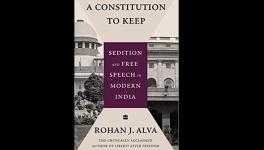Bidar Sedition Case: Two Women Spend More Than 14 Days in Custody
A primary school teacher and single mother of an 11-year-old student of Shaheen School from Bidar, Karnataka await their bail order scheduled for tomorrow, February 14. They have been booked on charges of sedition over a play performed by the students of the school last month which criticised CAA-NPR-NRC.
Soon after the event, a case was registered against the school. Nilesh Rakshala, who filed the complaint, is a member of Akhil Bharatiya Vidyarthi Parishad (ABVP). He alleged that the play insulted Prime Minister Modi. The police arrested Fareeda Begum, a teacher, and Nazbunissa, a single mother of a student of the school, on January 30.
Apart from sedition, the charges in the FIR include Sections 504 (Intentional insult with intent to provoke breach of the peace), 505 (2) (Statements creating or promoting enmity, hatred or ill-will between classes), 153A (promoting enmity between groups based on religion, race, place of birth, residence and language) and 34 (Acts done by several persons in furtherance of common intention).
Sedition is an offence under section 124A of the Indian Penal Code, 1860. The section penalises any expressions that “bring or attempt to bring hatred or contempt” or “excite disaffection” against the government established by law in India. The explanation given under the section states that “disaffection includes disloyalty and all feelings of enmity”.
The play in question has a critical and humorous take on the issue of submission of documents during the NPR and NRC process. Maitreyi Krishnan, a lawyer practicing in Bangalore and involved in protests against the case, told the Indian Cultural Forum and Newsclick that this is a “clear case of targeting and absolute harassment”. She said that “The Supreme Court laid down in the Kedarnath judgment (1962) that for sedition there should be an incitement to violence. This case does not in any way come under the definition of sedition”. Even as no incidents of violence or disorder have been reported after the staging of the play, both the women arrested have already spent more than 14 days in custody.
Sedition is classified as a cognisable and a non-bailable offence. For a cognisable offence, the police can start an investigation without securing any approval from the magistrate and arrest without warrant. The investigation of the case was widely criticised as students, as young as nine-year-olds, were also subjected to multiple questioning by the police. The students were reportedly intimidated by the repeated visits of the police. The Karnataka State Commission for Protection of Child Rights criticised the action of the police stating that they violated the provisions of the Juvenile Justice Act.
In a PIL filed by the NGO Common Cause in 2016, the Supreme Court laid down that while investigating sedition cases courts should follow the guidelines in the Kedarnath Judgment of 1962. However, Krishnan said that the investigation and arrests made in the case are in complete contravention of the law, as laid down by the Supreme Court in the Kedarnath case. She further added that “For arrests there should be a threat that the person would abscond or intimidate witnesses and these arrests are against the law.”
Despite the fact that one of the arrested is a single mother, the court has not taken any immediate cognisance of the case. The matter is listed for the bail order tomorrow.
Get the latest reports & analysis with people's perspective on Protests, movements & deep analytical videos, discussions of the current affairs in your Telegram app. Subscribe to NewsClick's Telegram channel & get Real-Time updates on stories, as they get published on our website.
























